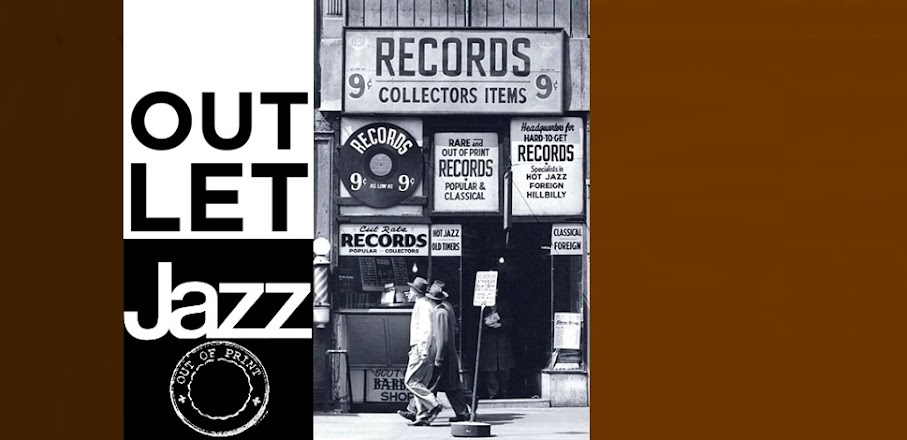Billy Byers
The RCA Victor Jazz Workshop
In Greek mythology there was a remarkable marine deity in the service of Poseidon, the god of the sea. His name was Proteus, and when seized he would assume different shapes.
Billy Byers’ music has nothing to do with Greek mythology, except to the extent that from Proteus’ name the adjective "protean" was derived to denote anything or anybody very changeable or versatile, able to alter in shape, principle or style as desired; and by all odds Billy Byers, when seized, is as protean a cat as you will find in or out of jazz today.
If the exigency of the moment calls for a movie background score, don’t forget that after he came out of the Army in 1945 Billy Byers was busy writing for the film studios for three years. If it’s TV music that’s needed, he can point to the several seasons he dedicated to the scoring of "Your Show of Shows" and of numerous Spectaculars for Max Liebman. Or if big-band jazz orchestrations are required, he can duplicate his success with the bands of Benny Goodman and Charlie Ventura.
On the other hand, when the situation simply requires a capable trombonist, remember that this was how Billy got his start, playing with the Hollywood Canteen Kids at the age of fifteen (he was born in Los Angeles in 1927); and much of his early experience was gained on the road with Georgie Auld and Buddy Rich. His playing and writing have contributed already to a number of successful RCA Victor jazz albums.
Furthermore, in case you wondered whether a man burdened down with so many heavy responsibilities might be capable of going back home to reunite with the origins, let us recall, too, the evenings he spent getting his kicks in the Dixieland bands at Eddie Condon’s and the Stuyvesant Casino.
As you are beginning to observe, Proteus had nothing on Mr. Byers.
When Jack Lewis assigned Billy an album in the RCA Victor Jazz Workshop series, it was to be expected that operating within this challenging framework Billy would again show his ability to assume various guises. Accordingly, he is presented here in three provocatively contrasted settings: one featuring four strings, another in which he’s part of a trombone quartet along with trumpet, saxophone, bass and drums; and a third in which the instrumentation is more conventional — three horns and three rhythm.
At this writing Billy Byers is taking French leave from the U. S. scene, composing and arranging for Ray Ventura in Paris. After hearing his own first album I’m sure you will join me in hoping he’ll soon become homesick. *Leonard Feather (liner notes)*
The remarkably versatile trombonist-writer, Billy Byers, currently recording and arranging in France for Ray Ventura, handles his Victor Jazz Workshop assignment with characteristic avoidance of the overfamiliar and with much taste. He uses three different groups — three cellos and rhythm section with horns; trombone quartet with alto, trumpet, and rhythm; three horns and rhythm.
The musicians present are Nick Travis and Bernie Glow, Urbie Green, Fred Ohms and Chauncy Welsh, Al Cohn (clarinet, tenor, baritone), Phil Woods (clarinet, alto); Jerry Sanfino (flute, alto); Milt Hinton, Osie Johnson, Moe Wechsler (piano and celeste), vibist Joe Venuto, violinist Gene Orloff, and cellists Alan Schulman, Lucien Schmit, and Bernie Greenhouse.
Billy did all the writing, much of it quite effective and reflecting his feeling for dynamics. The casual, often witty originals are also his, and it’s disappointing once again that a workshop LP (or any other) should cram a dozen tracks into one set. The Funky Music Box, for example, needn’t have been left in such a sketchy form.
The rating would be higher were it not for the four string tracks. Byers does not use strings so that they have any added jazz value, and they only serve to oversweeten the sound. Among the highlights are Cohn’s clarinet on "Chinese Water Torture" (Al should record more on the instrument, including bass clarinet) ; Billy’s warm, flowing trombone all the way; Woods (called Phil Funk here); and the over-all skill of the rest of the men on the date. Had the strings been omitted and had there been more space for Billy to expand fewer songs into more cumulatively building climaxes, this could have been a major LP. As it is, it’s a sound collection, very much worth hearing.
*Nat Hentoff, Down Beat, July 11, 1956*
Side 1
1 - Alone Together
(Howard Dietz, Arthur Schwartz)
2 - The Tickler
(Billy Byers)
3 - Billy Bones
(Billy Byers)
4 - Chinese Water Torture
(Billy Byers)
5 - I See A Million People
(Robert Sour, Una Mae Carlisle)
6 - Back In Your Own Back Yard
(Jolson, Rose, Dreyer)
Side 2
7 - The Funky Music Box
(Billy Byers)
8 - The Great Rationalization
(Billy Byers)
9 - Sunday
(Miller, Cohn, Stein, Kreuger)
10 - Misty Osie
(Billy Byers)
11 - Thou Swell
(Lorenz Hart, Richard Rodgers)
12 - You're Mine You
(John Green, Edward Heyman)
#3, #4, #8, #10:
Bernie Glow (trumpet); Billy Byers, Urbie Green, Fred Ohms, Chauncey Welsh (trombones); Al Cohn (clarinet, tenorsax, baitone sax); Moe Welscher (piano, celeste); Milt Hinton (bass); Osie Johnson (drums).
Recorded in New York City, December 9, 1955.
#2, #6, #7, #11:
Nick Travis (trumpet), Billy Byers (trombone), Phil Woods (clarinet, alto sax), Moe Welscher (piano, celeste), Milt Hinton (bass), Osie Johnson (drums).
Recorded in New York City, December 23, 1955.
#1, #5, #9, #12:
Billy Byers (trombone); Jerry Sanfino (flute, clarinet, alto sax); Joe Venuto (vibes, marimba); Moe Welscher (piano, celeste); Milt Hinton (bass); Osie Johnson (drums); Gene Orloff (violin); Alan Schulman, Lucien Schmit, Bernie Greenhouse (cellos).
Recorded in New York City, December 30, 1955.


Many thanks!
ReplyDeleteGracias blbs
ReplyDeleteNo conocía a este músico, gracias por este disco y por los comentarios.
ReplyDeleteThank you!!
ReplyDelete